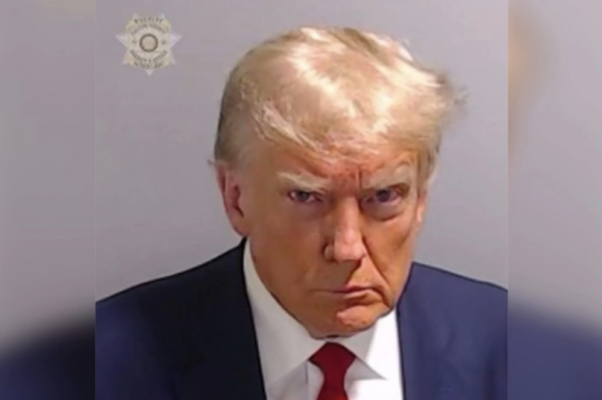President Donald Trump’s political tenure was marked by fervent support and vehement opposition. However, beneath the surface of political disagreements, it becomes evident that he exposed adversaries lurking within the government and media who now actively conspire to sideline him. These adversaries, threatened by Trump’s policies and America-first commitment, are tirelessly working to diminish his influence and thwart his legacy.
During and after the Trump administration, some individuals and groups could be labeled as “enemies within” of the President. They represented political opponents and potential threats to President Trump’s vision for America. Their actions included vocal criticism of the President’s decisions, alleged leaks of sensitive information to the media, and behind-the-scenes maneuvers aimed at obstructing or undermining his policy agenda.
President Trump pointed fingers at those he perceived as threats to his administration. Among these adversaries were the “deep state,” influential figures in the media, and Democrats in Congress. They formed part of a vast network determined to dismantle his America-first agenda.
The “deep state,” often synonymous with entrenched bureaucrats and officials, became a recurrent target of President Trump’s relentless pursuit of transparency and accountability. This shadowy network sought to undermine his authority, thwart his policy initiatives, and hinder his promise to prioritize American interests over global agreements and conventions.
His America-first approach, characterized by stricter immigration policies and tax reforms, faced unwavering opposition from lawmakers across the aisle. This resistance only reinforced the belief that enemies conspired to eliminate Trump’s influence on national policy.
During his presidency, Trump oversaw a remarkable economic boom, groundbreaking criminal justice reform, and staunch efforts to safeguard Second Amendment rights. His administration’s economic policies led to record-low unemployment rates and substantial stock market gains. Criminal justice reform, an issue that long languished on the sidelines, saw unprecedented progress under Trump, earning him bipartisan acclaim. His pledge to protect Second Amendment rights resonated deeply with millions of Americans.
A group of career bureaucrats and former Obama administration officials were accused of conspiring to undermine President Trump. The House Intelligence Committee’s release of declassified transcripts related to the Trump-Russia collusion investigation revealed a lack of concrete evidence to support the collusion claim. This raised questions about the credibility of the accusations and fueled suspicions that some members of the “Deep State cabal” had been saying one thing behind closed doors while making wild and often contradictory claims in public.
Trump’s enemies within the political landscape may be overlooking his resilience and ability to rally his supporters. The left-wing media’s anti-Trump fervor, rather than weakening him, has, in the eyes of his supporters, only served to make him stronger.
The left’s steadfast refusal to acknowledge any successes or achievements of the Trump administration underscores a bias that fuels the perception of a hostile media environment. Trump’s opponents are aware that he has the potential to stage a remarkable political resurgence, underscoring the enduring political influence of Donald Trump.
One of the most enduring legacies of President Trump’s time in office is his role in exposing an alarming level of rot and corruption within the American political system. He shed light on the extent to which ruling class elements were willing to undermine a president who challenged the established order. The relentless efforts to destroy him, differing standards in the courts, and the use of hatred as a proxy for destruction all exemplified the determination of some to protect their interests, even at the expense of democratic norms and institutions.
Even after leaving office, President Trump remains at the epicenter of an unrelenting battle. High-profile events like the Georgia subversion trial and ongoing disputes over the 2020 election results underscore the enduring impact of his presidency on American politics.
The Georgia subversion trial showcases the enduring legal challenges surrounding the 2020 election, serving as a testament to President Trump’s dedication to ensuring the integrity of the electoral process.
The looming threat of impeachment in Texas is a calculated move by political opponents who seek to undermine individuals like Texas Attorney General Ken Paxton and the values and ideologies they represent. It’s seen as part of a broader pattern where individuals perceived as Trump loyalists are targeted for their commitment to conservative principles, traditional values, and support for the former President.
President Trump’s presidency exposed enemies within the government and media who now actively conspire to diminish his influence and impede his legacy. Regardless of one’s political affiliation, it is crucial to recognize the significance of such power struggles and their potential consequences for individuals and society as a whole.
While the fight continues, it is important to remember the substantial accomplishments of the Trump administration and the ongoing commitment to America-first policies, which remain a cornerstone of political discourse. President Trump’s legacy, whether lauded or criticized, undeniably left an indelible mark on the American political landscape, inspiring passionate support for the principles he championed.
